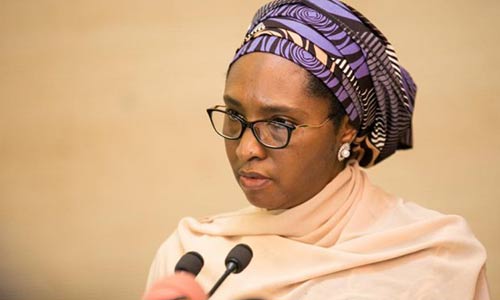Ebuka Daniel
Economic stakeholders have called on government at all levels to show more commitment to building resilience in the Micro, Small and Medium Enterprises subsector of the economy.
They said this at a national dialogue on the economic impact of Covid-19 and assessment of national, state recovery plans and policy options.
The event, held on Tuesday in Abuja, was organised by the Deutsche Gesellschaft für Internationale Zusammenarbeit (GIZ).
GIZ had said that the growth of MSMEs, which currently provide for over 80 percent of employment and 50 percent of economic growth had been constrained by inadequate framework as well as lack of access to financial services.
Speaking at the dialogue on Tuesday, the Consultant, GIZ, Robert Asogwa, said that there was need for governments at all levels to ensure that intervention programmes meet the desired goal through effective monitoring.
According to him, most of the strategies and policies of the government had centered around financing instruments such as tax waiver, tax deferment among others.
However, he explained that these interventions may not yield the desired results as they were not structured under a long-term arrangement.
“In as much as short term structural policies were critical to respond swiftly to the issues posed by the COVID-19 pandemic, long term policies are much more needed because these issues are not over.
“To ensure the success of these intervention programmes, we must continuously carry out assessment to know if they are addressing the gaps created by the pandemic,” he added
He also explained that majority of small businesses only benefitted from loans disbursement and not grants, adding that this may become harmful to these businesses when the loans begin to mature.
The Minister of Finance, Budget and National Planning, Zainab Ahmed in her remarks noted that the government has carried out several fiscal measures to balance both health and economic issues in addressing the burden of Covid-19 on MSMEs.
These measures, according to her, include the establishment of a N500bn Covid-19 crisis intervention fund to finance the upgrade and improvement of healthcare facilities; and creation of a special public works programme to employ 774,000 people.
Others are the scale up of social safety net programmes including cash transfers, and school feeding programmes to provide support for vulnerable people.
She noted that the 2019 Finance Act was introduced with various initiatives to boost Agri-business with tax exemption for small businesses.
The head of Project, GIZ, Ana Vinambres in her remarks said that in reaction to the global outbreak of Covid-19, the German government had allocated about 12 million Euros for immediate support in the ECOWAS region.
She explained that amongst others, German funds were made available to support the development of national COVID-19 immediate response plans, for trainings of medical task forces and for the purchase of personal protective equipment, intensive care-unit equipment, as well as locally produced sanitizer.
 The Commerce Africa African Reneissance
The Commerce Africa African Reneissance


